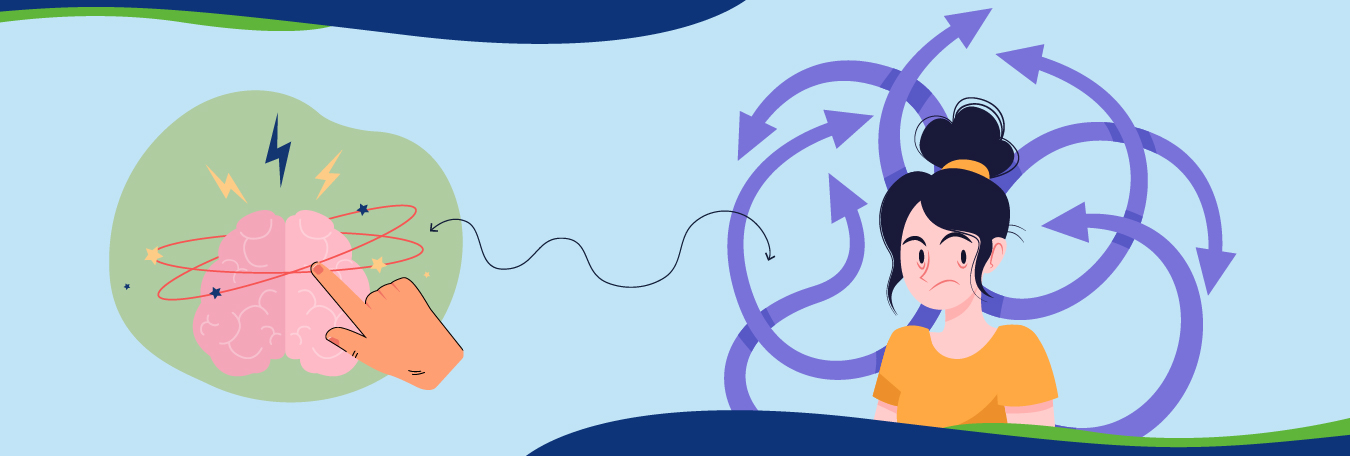Seasonal Affective Disorder, which causes seasonal depression often comes up obviously due to a change in seasons can also happen different range of reasons. In fact, it’s the case when two or three factors including the change in the seasons strike, then only seasonal affective disorder strikes. One of these reasons can be genetics, so no wonder a lot of people ask, “Is Seasonal Depression Genetic?”. We are going to answer this question while ensuring to elaborate on the different causes of seasonal depression in the words below:
Defining Seasonal Affective Disorder
Seasonal Affective Disorder, which is predominantly caused by the change in seasons in addition to some other causes that timely come together, is considered to be a subtype of both major depressive disorder (hence the question being asked, “Is seasonal depression genetic?”) and bipolar disorder.
Read More: Symptoms and Causes of Depression – How to Treat Them?
Just like major depressive disorder is characterized by prolonged sadness and a general lack of interest and bipolar disorder is characterized by similar depressive episodes alternating with periods of abnormally high energy and activity (hypomania or mania), seasonal affective disorder. This is why we end up calling it seasonal depression or seasonal “Blues” as depression as a symptom is also a large component of this type of illness. These tend to be different from something like an anxiety disorder such as OCD, which is treatable with treatments like psychotherapy and does not progressively get worse if treated on time.
The depressive part displays symptoms such as a loss of interest or enjoyment in activities, a decrease in energy, a depressed mood, and low self-esteem. Seasonal affective disorder has signs and symptoms of either major depressive disorder or bipolar disorder only during certain months of the year but predominantly it is seen with major depressive disorder because it is depression is one of the most common mental illnesses in existence.
Read More: What Is High-Functioning Depression?
So, Is Seasonal Depression Genetic?
Research has identified a couple of genetic markers that frequently act as causes of seasonal depression, so let’s see what are these:
Serotonin and SAD
The reuptake of the neurotransmitter serotonin (which is a significant factor in inducing changes in mood and feelings among other things) at the incorrect time often leads to depression and symptoms that are commonly associated with bipolar disorder. Similarly, it has been suggested that a large amount of literature suggests that the neurotransmitter serotonin plays a role in the development of seasonal affective disorder. These studies have focused on how hypothalamic serotonin receptor concentrations and serotonin transporters tend to have seasonal fluctuations (Willeit et al., 2003).
SAD and Its Relation With Circadian Block
There is an internal clock of sorts inside our body that keeps us aware of the changes in time and season. There is a reason people also ask how common is seasonal depression because it relates to the fact that the circadian block is essentially affected in many of us who feel depressed during winter and rarely during summer after a change in seasons has already happened.

The changes in the oscillating clock often lead to disrupted sleep time, which in turn becomes the cause of depression in many of the affected individuals. Research has demonstrated that genetic mutations that interact with the chemical reactions that come due to little or complete absence of light do indeed interfere with the biological clock which can disrupt sleep timings in those with SAD and therefore cause depression or unpredictable changes in the process (Liberman et al., 2017).
Read More: Will Depression Make You Tired?
SAD and G-Proteins
G proteins (guanine nucleotide-binding protein) play a key role in transmembrane signal transduction. These too have been acting as one of the rising genetic markers that induce seasonal depression, leading people to ask questions like, “Is seasonal depression genetic?”. Several researchers have found that G proteins could be associated with affective or mood disorders such as SAD, in addition to the fact several twin and family studies support the claim that SAD might be an inherited disorder (which we dive into in the next section) (Willeit et al., 2003).
Is Seasonal Depression Hereditary?
If you have been asking questions such as “Is seasonal depression hereditary?”, which is a much more important question than say, “Is seasonal depression genetic?”, then you are on the right track. While the terms hereditary and genetics are used interchangeably, the meaning behind both of these is slightly different.
Genetic means can run in the family if all genetic markers (actually phenotype) usually come together and mutate to make the illness in an individual who belongs to that family an actuality while hereditary means that there are certain genotypes existing in an individual that can if these mutate at a precise time and with other genotypes, can cause an illness in the parent but can also be passed to children. Many diseases or illnesses that can be hereditary are genetic but not all genetic diseases are hereditary. This means hereditary diseases can be passed onto different family members and can be generational if all genetic markers align in one or the whole halves of the parents because they were inherently genetic to start with. The odds are higher for a disease to become hereditary if both parents have genetic markers of the said disease. Something like bipolar disorder and eating disorders tend to run in the family, which means they are
So, coming back to the question,” Is seasonal depression hereditary?”, or “Is seasonal depression genetic?” What is the answer? You already know that seasonal depression or seasonal affective disorder is indeed genetic as we have already discussed the main genetic markers above but is it hereditary too? If you remember when we were discussing one of the markers, we mentioned how several twin and family studies support the claim that SAD might be an inherited disorder (Willeit et al., 2003), then there is a good chance, it is also indeed hereditary.
Read More: Depression And Eating Disorders: Understanding The Link And Finding Help
Conclusion
We hope you now have a definitive answer to the question, “Is seasonal depression genetic?” as we have laid out everything for your convenience. SAD might be hereditary but it is also treatable through options like telehealth psychiatry and psychiatric medication management and not just for SAD but for things like psychosis too. For these treatments, you can book an appointment at Inland Empire Behavioral Group.




